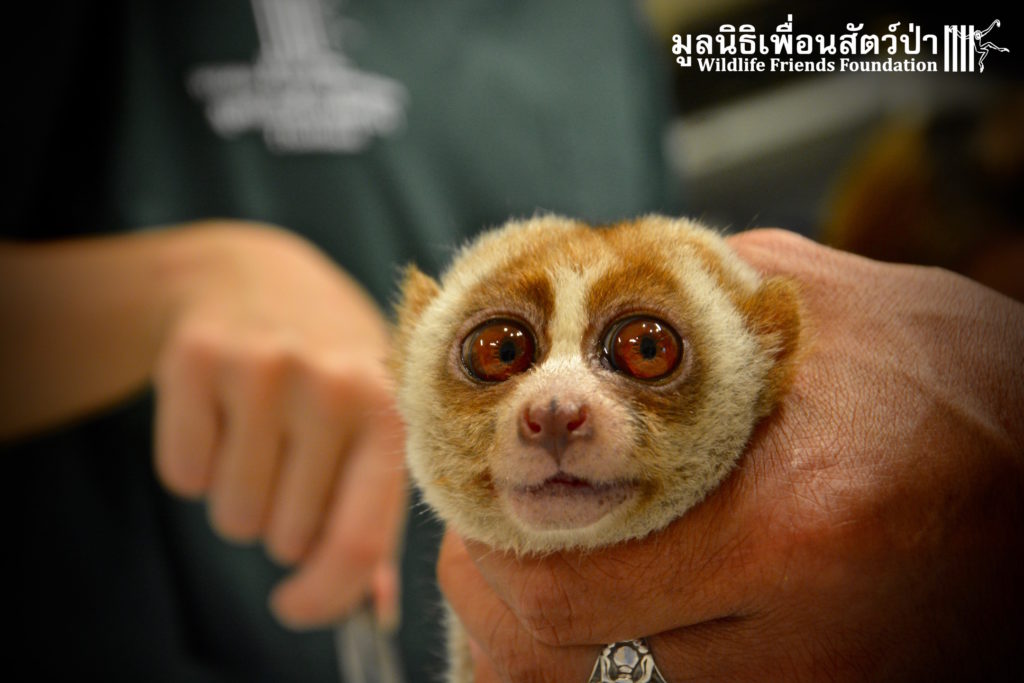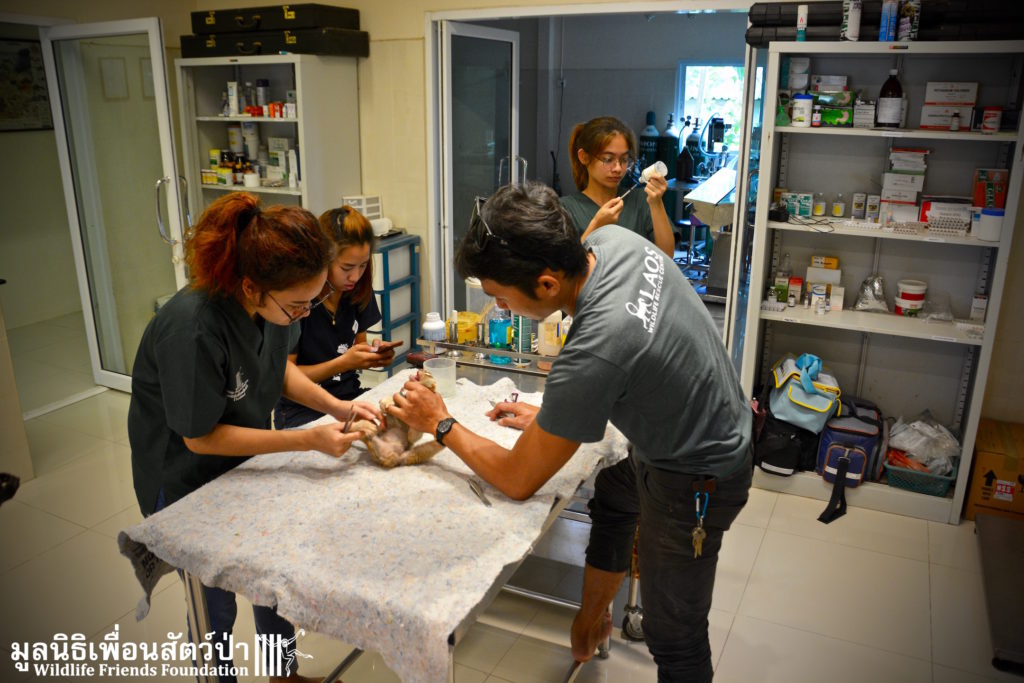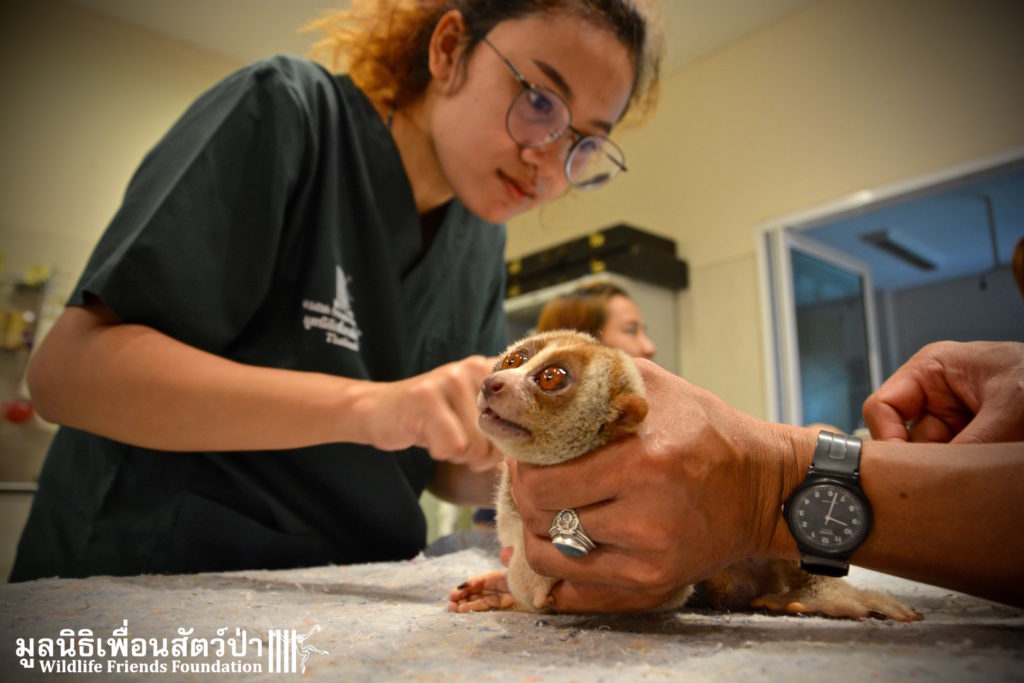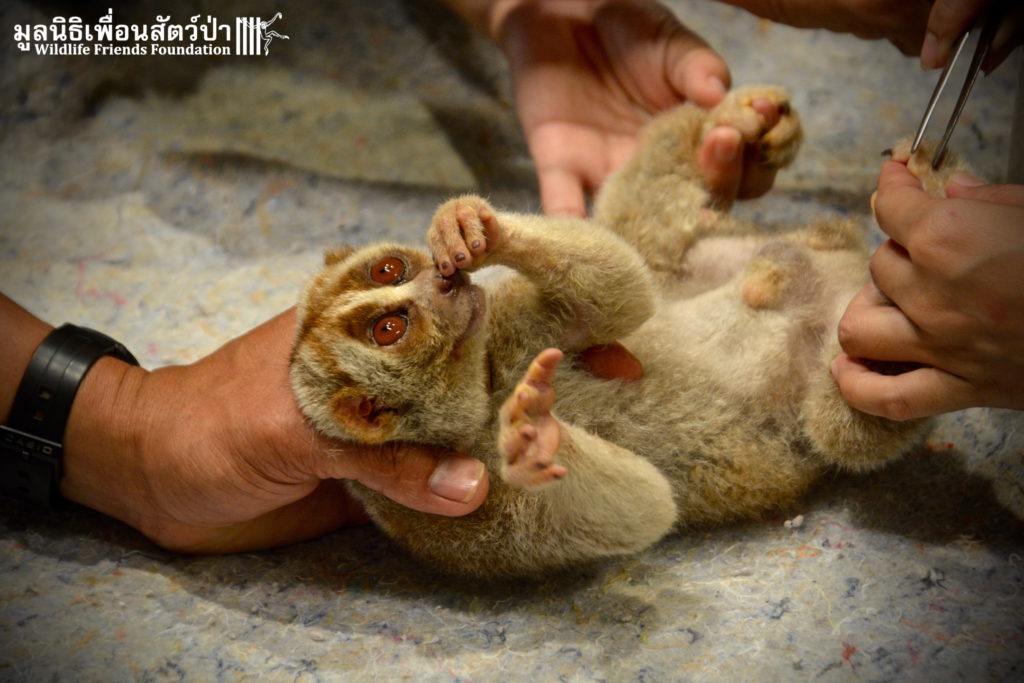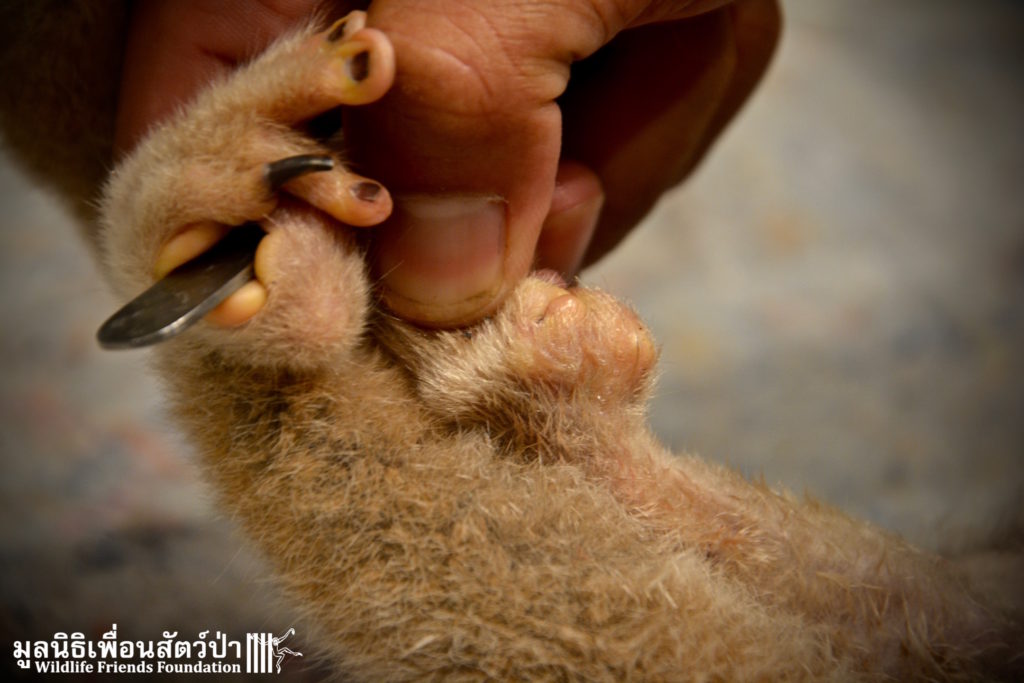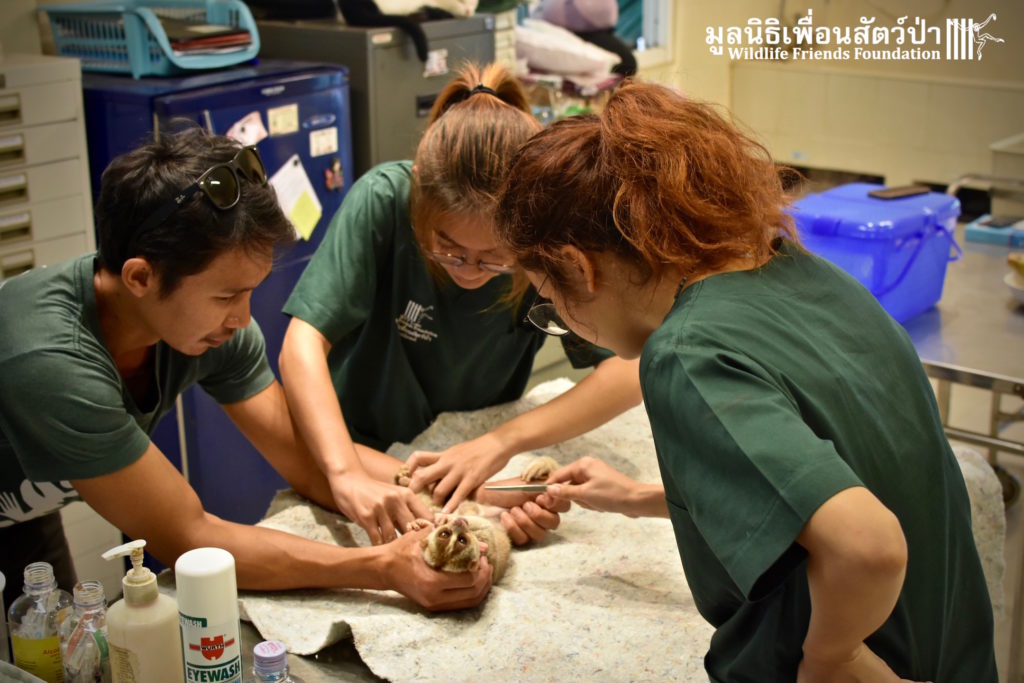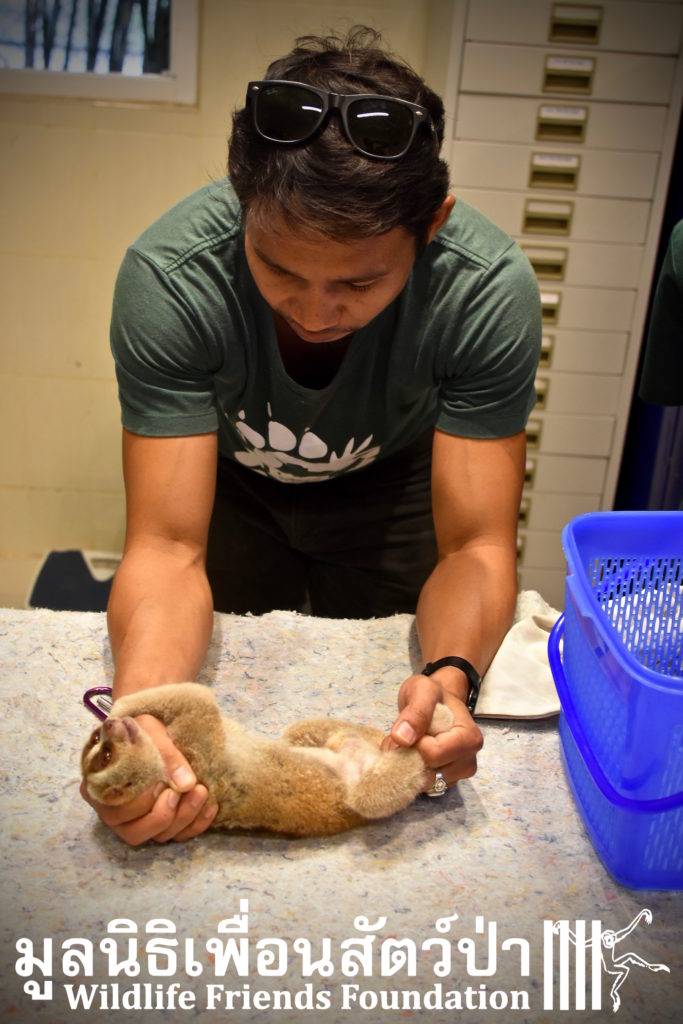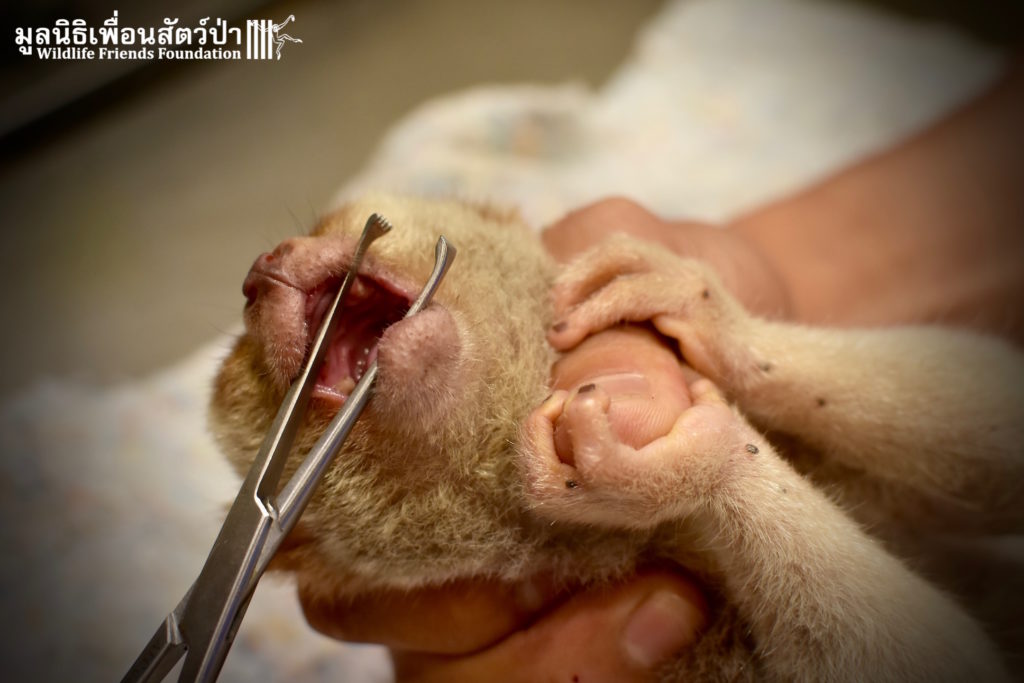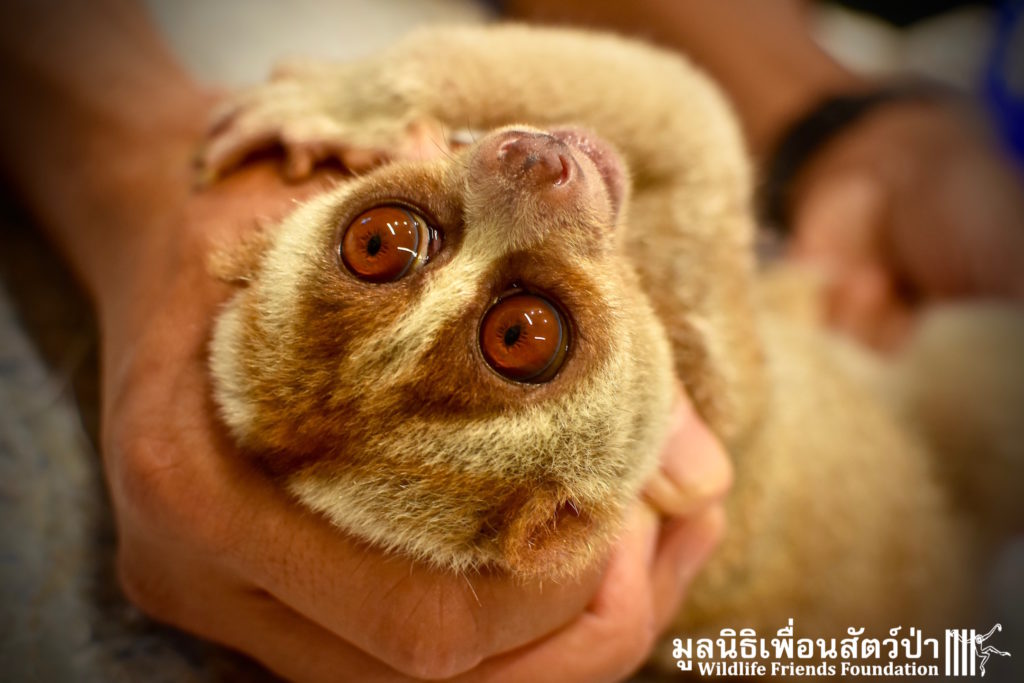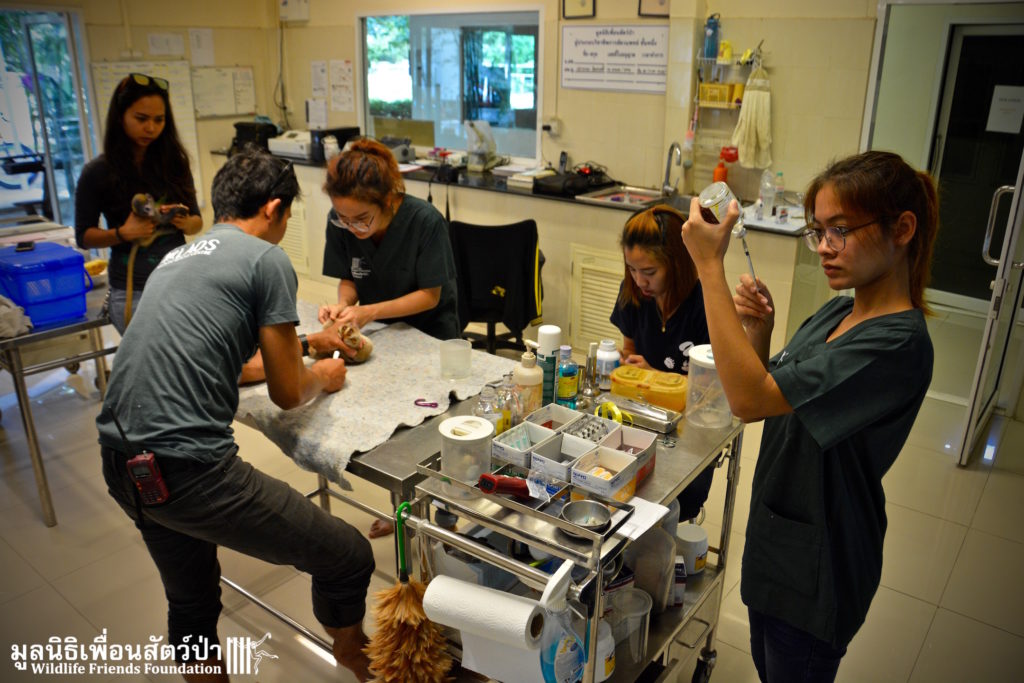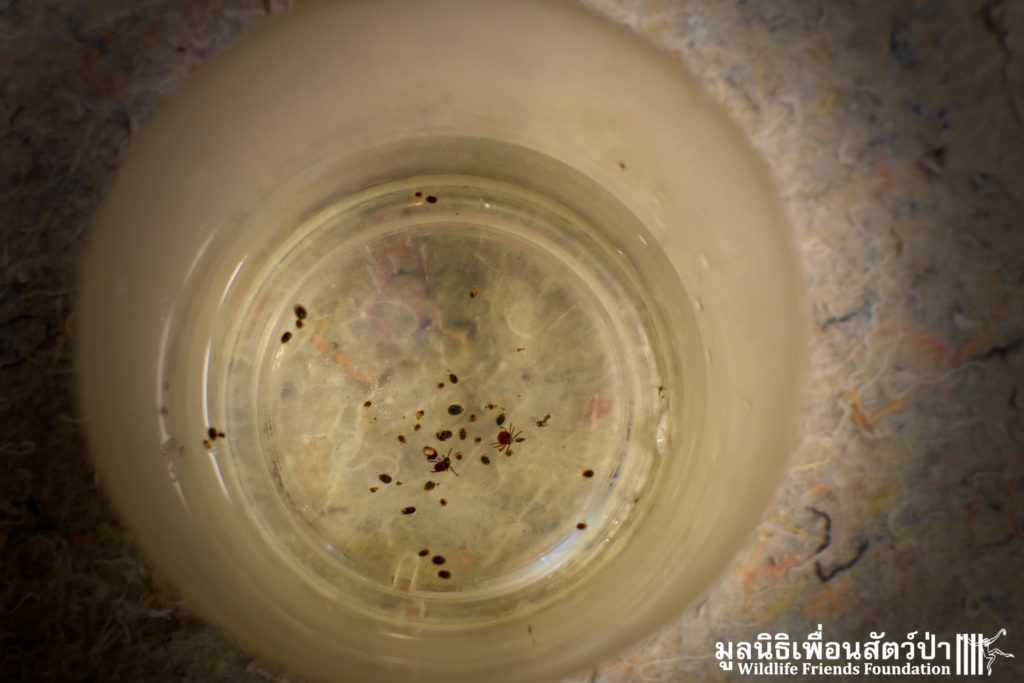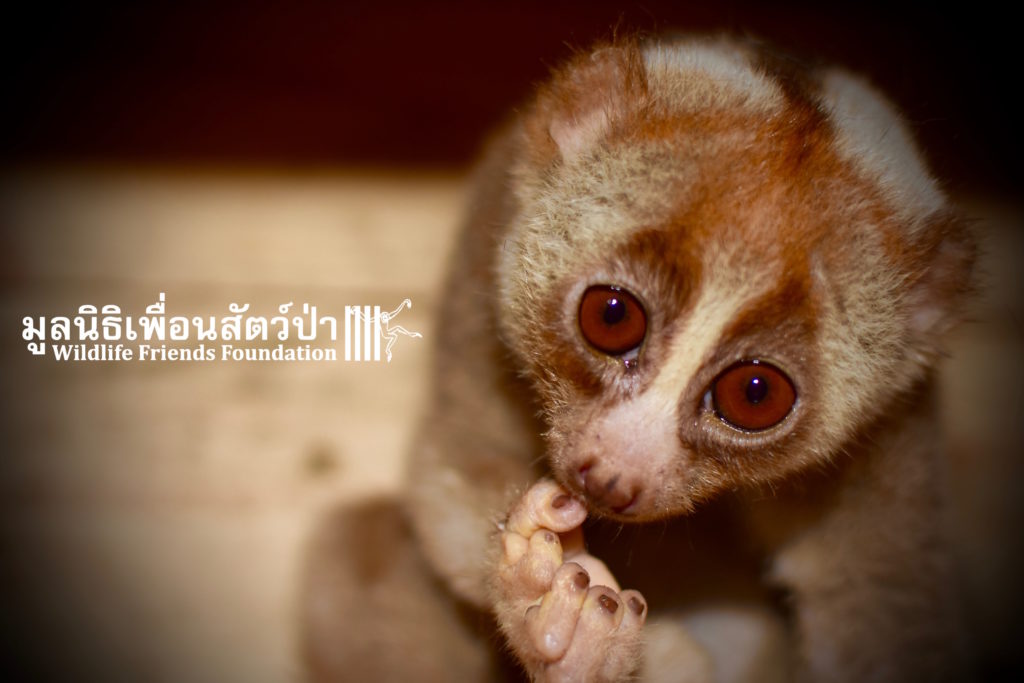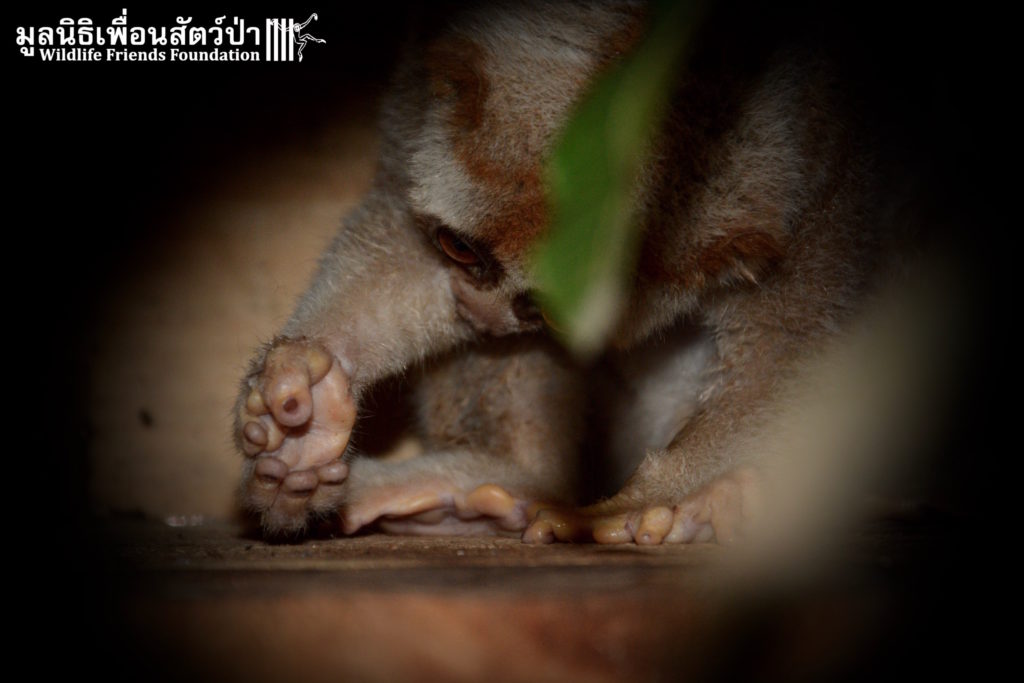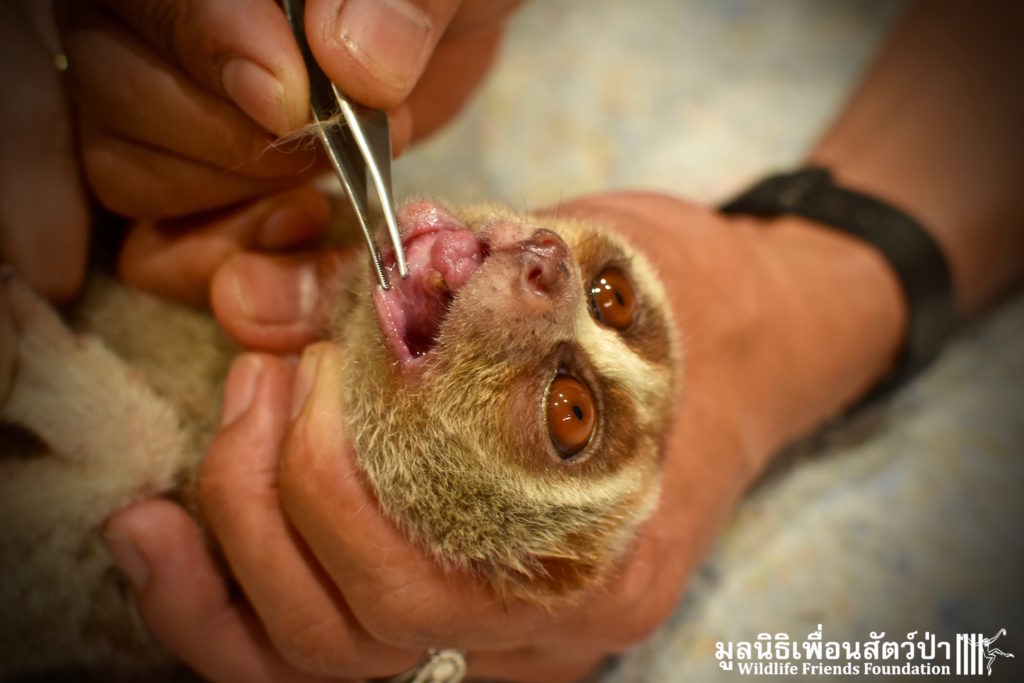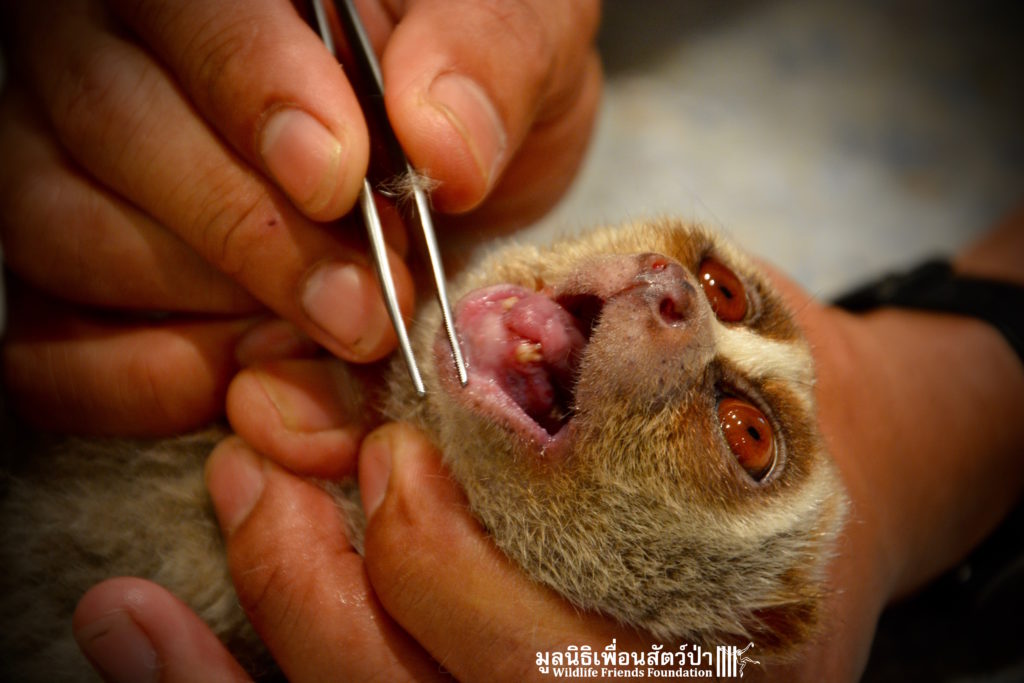Shampoo and Hoy, two stunning long-tailed macaques, have recently arrived at WFFT after enduring years in a cramped cage, deprived of sunlight and freedom.
WFFT Welcomes Boris the Slow Loris
Boris Loris a male Bengal slow loris (Nycticebus bengalensis) arrived at the WFFT Wildlife Rescue Centre yesterday evening from Koh Samui where he had been rescued by Phil of Samui snake and wildlife rescue. He had been handed to Phil after being ‘found’ in the Chaweng Beach area of the island of Koh Samui, this area is well heavily used by tourists and frequented by people using wild animals illegally as photo props.
A check over by the WFFT Vet Team revealed some hideous findings, Boris’s teeth had been clipped, he has had a broken wrist at some point and he was covered in ticks. Lorises are often captured from the wild using cruel snares, that can maim and often kill them, so this may explain the old wrist injury. Teeth clipping and extraction is common with captive lorises, particularly those that are used illegally as photo prop animals to prevent them from causing injuries to the people that pay money to get that all so great selfie with a wild animal in a far away exotic place. Lorises are the only truly venomous primate, with a toxic bite that can cause severe injury and pain. The sad reality for the animals embroiled in a life of abuse within the tourist photo prop industry, involves being taken from the wild, ripped away from their mothers, sometimes drugged, their body parts modified to suite the needs of tourists, they spend endless nights being dragged around bright, loud, overpopulated and polluted areas.
The Bengal Slow Loris is listed as Vulnerable by the IUCN Red List of Threatened Species. This is due to loss of habitat and severe pressures from hunting, there is more than 30% reduction in population over three generations. The species is predicted to decline by more than 30% in the next three generations over its entire range due to continuing hunting pressures and loss of habitat. The major threats that this species’ habitat faces include farming, timber removal, human settlement, road building, dams, power lines, fragmentations, soil loss and erosion, and deliberately set fires. They are hunted and traded for food, traditional “medicine”, sport, and as pets.
For Boris Loris, he now has some peace, due to his lack of teeth he will not be a candidate for release back to the wild but we will provide him with a more suitable existence here at the WFFT Wildlife Rescue Centre. He will be able to climb in the trees, receive proper diet, mix with his own species, and never be handled by a tourist or a tourist tout ever again. Please do not support this illegal activity. Any sighting of such activities can be reported to the authorities and ourselves.
